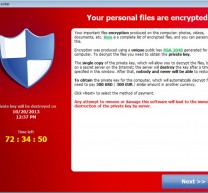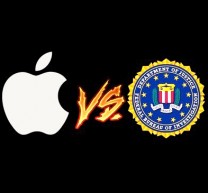Home | Solutions Blog
Latest Posts

“There is a basic truth: It is the consumer’s information. It is not the information of the network the consumer hires to deliver that information.”
These were the words of Tom Wheeler, the chairman of the F.C.C., when it was announced that Federal regulators have approved new broadband privacy rules that require internet service providers like Comcast and Verizon to ask for customers’ permission before using or sharing much of their data. He went on to say that the information used “should be the consumers’ choice, not the choice of some corporate algorithm.”
Privacy groups were, of course, thrilled with the new rules, which move the United States closer to the stricter policies in European nations. The industries that depend on online user data were not quite as happy, with the Association of National Advertisers labeling the regulations “unprecedented, misguided, counterproductive, and potentially extremely harmful.”
What does all of this really mean for consumers?
Posted in Online Privacy, Uncategorized by Identity Theft Speaker John Sileo.
Tags: "Internet Providers", "John Slleo", Sileo
Setting Up Account Alerts Can Help Protect You From Fraud.
Did you realize that you can have your credit card company and bank notify you anytime there is activity on your account? This tool makes it very easy to catch fraud before it stings your wallet.
Posted in Business Life, Fraud Detection & Prevention, Video Tips by Identity Theft Speaker John Sileo.

Not unlike the purported size of his hands, Donald Trump has a rather small file of publicly known information compared to those who have been in the political spotlight for many years. That could be one of the motivating factors behind the recent hacking of the Democratic National Committee. While the size of Trump’s hands has little to do with any serious conversation, it does remind us that foreign nation states are highly motivated to collect the private information of powerful people.
The DNC revealed recently that two groups had gained access to their information; one (dubbed Cozy Bear) had been monitoring the committee’s emails and chats for as long as a year. The other, “Fancy Bear”, hacked into the DNC in April to get opposition research files and was able to gain access to all of the DNC’s research staff computers.
Posted in Cyber Data Security by Identity Theft Speaker John Sileo.
Tags: Democratic National Convention, DNC Hack, DNC Hacked, Donald Trump Hack, Trump, Trump Hacked
Mark Zuckerberg Hacked Because of Weak Passwords
It seems Mark Zuckerberg might be a little lazy, or a little stupid, or at the very least a little embarrassed. The undisputed king of social media has had two of his social media accounts hacked. Granted, it was not his Facebook account—just his Pinterest and Twitter accounts, the latter of which he hasn’t used since 2012. A Saudi Arabian hacker team named OurMine has taken credit for the attack, claiming they got his password from the recent dump of information obtained in the LinkedIn data breach from 2012.
Let’s see where Mr. Zuckerberg went wrong by using the safe password development tips (in bold below) from his very own creation: Facebook.
Make sure your password is unique, but memorable enough that you don’t forget it. Supposedly, Zuckerberg’s password was “dadada”.
Posted in Cyber Data Security, Identity Theft Prevention by Identity Theft Speaker John Sileo.
Tags: "Password Safety", Hacked, John Sileo, Password, Passwords, Sileo, Zuckerberg

When was the last time you checked your privacy settings on your social media profiles? Being aware of the information you share is a critical step in securing your online identity. Below we’ve outlined some of the top social media sites and what you can do today to help keep your personal information safe.
FACEBOOK Social Media Privacy
Click the padlock icon in the upper right corner of Facebook, and run a Privacy
Checkup. This will walk you through three simple steps:
- Who you share status updates with
- A list of the apps that are connected to your Facebook page
- How personal information from your profile is shared.
As a rule of thumb, we recommend your Facebook Privacy setting be set to “Friends Only” to avoid sharing your information with strangers. You can confirm that all of your future posts will be visible to “Friends Only” by reselecting the padlock and clicking “Who can see my stuff?” then select “What do other people see on my timeline” and review the differences between your public and friends only profile. Oh, and don’t post anything stupid!
Posted in Online Privacy by Identity Theft Speaker John Sileo.
Tags: facebook privacy, Instagram, Instagram Privacy, John Sileo, Online/Social Media Privacy, Privacy, Sileo, Social Media Privacy, twitter, twitter privacy

Whether data breach or insider leak, Panama Papers Cyber Security lessons still the same.
By now, you’ve heard about the leaked papers from a Panamanian law firm implicating world leaders, sports figures and celebrities alike in a scheme to shelter massive wealth in off-shore corporations (if not, see the NYTimes summary below for relevant links). At this point it is still unclear whether the 11.5 million records were obtained through hacking or leaked from someone inside of the Panamanian law firm.
But from a cyber security perspective, the lessons are nearly identical either way. At issue here is the massive centralization of data that makes either breach or leakage not only inevitable, but rather convenient. World leaders and executives alike must have a sense of deja vu from the leakage of the NSA documents by Edward Snowden several years ago. From a security perspective, it is baffling in both cases that one individual would have access to such a trove of data. This suggests that the records were not properly segmented, encrypted or subjected to user-level access permissions.
Posted in Cyber Data Security by Identity Theft Speaker John Sileo.
Tags: Cyber Security, John Sileo, Panama Papers, Sileo

Ransomware: A Vital Course on the Next Big Cyber Threat
Ransomware is pretty much exactly what it sounds like: it holds your computer or mobile phone hostage and blackmails you into paying a ransom. It is a type of malware that prevents or limits users from accessing their system and forces its victims to pay the ransom through certain online payment methods in order to grant access to their systems or to get their data back.
It’s been around since about 2005, but earlier this year, the FBI issued an alert warning that all types of ransomware are on the rise. Individuals, businesses, government agencies, academic institutions, and even law enforcement agents have all been victims.
Posted in Cyber Data Security by Identity Theft Speaker John Sileo.
Tags: Cryptolocker, Cryptowall, Cyber Blackmail, Cyber Security, Cyber Security Expert, Ransomware

Apple vs FBI: Building a backdoor into the iPhone is like burning the haystack…
I’ve been asked almost 100 times since Apple rejected the FBI’s request to break into the iPhone of the San Bernadino killers on which side I support. I am a firm believer that the most complex problems (this is one of them) deserve the simplest explanations. Here is the simplest way that I can walk you through the argument:
- If your immediate response, like many, is to side with Apple – “Don’t hack into your own operating system, it set’s a bad precedent” – then you have a good strong natural reflex when it comes to privacy. But don’t stop your thinking after your first reaction or thought, as it might be incomplete, because…
Posted in Cyber Data Security by Identity Theft Speaker John Sileo.
Tags: Apple, Apple vs. FBI, Cyber Security, Cyber Security Expert, FBI, iPhone, John Sileo, Privacy vs. Security, Sileo
Common Phishing Scenarios:
“Your account has been suspended” or “We suspect fraudulent activity on your account” or “You’ve won a contest” or “We owe you a refund”
If you’ve ever received an email, voicemail or text with a message like one of the above, you know how visceral your reaction can be. And chances are very high that the message is a fake.
Just as fishing is one of the oldest occupations around, phishing is one of the oldest scams around. Ever since email was invented, thieves have been phishing to get your information by cleverly impersonating a business or an acquaintance. They hope to trick you into giving out your personal information or opening a link or an attachment that downloads malware onto your computer so that they can gain access all of your data.
Posted in Cyber Data Security, Uncategorized by Identity Theft Speaker John Sileo.
Tags: "Phishing", John Sileo, Sileo

 Equifax Data Breach Protection Tips
Equifax Data Breach Protection Tips Beware Disaster Scams in the Wake of Hurricane Harvey
Beware Disaster Scams in the Wake of Hurricane Harvey Trump Russia Investigation Update: Did Campaign HELP Russians Plot Disinformation Strategy?
Trump Russia Investigation Update: Did Campaign HELP Russians Plot Disinformation Strategy? Is Russian Hacking of U.S. Nuclear Power Plants a Reality?
Is Russian Hacking of U.S. Nuclear Power Plants a Reality? Cyber Security Experts: NotPetya isn’t Ransomware – It’s Cyber Warfare
Cyber Security Experts: NotPetya isn’t Ransomware – It’s Cyber Warfare Investigate Russian Hacking for Security, Not Politics (and get on with governing)
Investigate Russian Hacking for Security, Not Politics (and get on with governing) Identity Theft Services: Is ID Theft Monitoring Worth the $$$?
Identity Theft Services: Is ID Theft Monitoring Worth the $$$? Internet Privacy Expert Reviews DuckDuckGo Private Search Engine
Internet Privacy Expert Reviews DuckDuckGo Private Search Engine Stop Check Fraud with Security Checks
Stop Check Fraud with Security Checks












